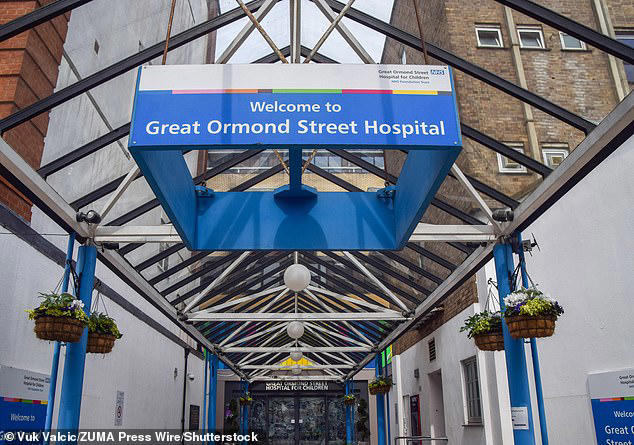NHS Gender Identity Unit Replacement Clinics Face Delays in Patient Care
Delays in NHS Gender Identity Clinics: What’s Going On?
The conversation around gender identity and healthcare has never been more crucial. With growing awareness and acceptance of various gender identities, the need for adequate medical support has surged. Yet, patients seeking care from the NHS’s gender identity services are finding themselves in a frustrating quagmire of delays and unmet expectations. If you’re wondering what’s going on with these clinics, allow me to guide you through this complex landscape, peppered with insights, statistics, and personal experiences that might resonate with you or someone you know.
The Rise of Gender Identity Clinics
In recent years, the spotlight has turned on the need for specialized healthcare services for transgender and non-binary individuals. The NHS established a number of Gender Identity Clinics (GICs) to provide medical, psychological, and social support for those navigating their gender identity journey. This initiative was supposedly a step forward, a beacon of hope in a world that too often ignores the needs of marginalized communities.
But here’s where the wheels seem to be coming off the wagon. Despite the supposed availability of these services, many patients are left waiting—some for years—before they can access the care they so desperately need. Why is that? Let’s dig deeper.
The Transition from Gender Identity Unit to Replacement Clinics
The NHS’s Gender Identity Unit had become infamous for lengthy waiting lists and inadequate patient care. Responding to criticism and the growing demand for LGBTQ+ healthcare, the NHS announced a strategy to replace these units with a network of new clinics aimed at improving patient experiences and outcomes. Sounds great, right? Unfortunately, reality has proven otherwise.
What Are the Delays?
-
Resource Allocation: The budget for these replacement clinics has faced scrutiny, leading to funding gaps that delay the establishment of much-needed facilities.
-
Training Needs: Ensuring that staff are properly trained to handle the nuanced and sensitive issues that come with gender identity care poses significant hurdles. It’s not as simple as reading a manual; real-life scenarios require real emotional intelligence and an understanding of diverse identities.
-
Administrative Challenges: Navigating the bureaucratic maze of the NHS can be exasperating. Poor communication between departments has resulted in additional delays, leaving patients to feel isolated and unheard.
What Does This Mean for Patients?
The repercussions of these delays can be profound. For many, each day spent waiting for a consultation feels like an eternity. The emotional toll is immense. Imagine being in a state of limbo about your identity, feeling like the world is moving around you while you stand still. It’s incredibly difficult, and countless individuals are grappling with anxiety, depression, and feelings of hopelessness as a result.
Patient Stories: Voices from the Waiting Room
Let’s step away from statistics and theory for a moment. Hearing actual stories from those affected can paint a clearer picture of the reality at hand.
Take Elise, for example. A 24-year-old non-binary individual, Elise has been waiting for over two years for an initial consultation with a gender identity clinic.
“It’s like being in a never-ending game of cat and mouse. I feel invisible,” Elise confesses.
For her, the lack of care and support has not only impacted her mental health, but it has also hindered her social life and personal growth.
Then there’s Jamie, a transgender man who has faced similar delays. “I just want to start hormones, but I’m stuck on this waiting list forever. How is that fair?” Jamie’s frustration echoes that of many others and highlights the urgent need for faster, more efficient healthcare services.
What Is Being Done to Address the Issue?
While the situation appears bleak, there are efforts underway to resolve these issues:
-
Improved Funding: The NHS has committed to reallocating funds to better support the establishment and operation of these replacement clinics.
-
Public Awareness: Campaigns highlighting the struggles faced by patients are helping to increase public pressure for reforms. This advocacy can create ripple effects leading to tangible change.
-
Media Attention: Coverage of these issues draws national attention, forcing policymakers to acknowledge and address the gaps in care.
Is There Hope on the Horizon?
As daunting as this problem may seem, there is a flicker of hope. With growing awareness, increased advocacy, and government commitment, patients may start seeing the long-overdue change that the system desperately needs. The journey might be long, but every small victory counts.
Navigating Your Way Through Delays
If you’re one of the individuals feeling stuck in this web of delays, here are a few tips that might help you:
-
Stay Informed: Keep yourself updated on the status of your application. Regularly reach out to your clinic for any updates.
-
Seek Support: Engage with local or online support groups. Talking to others who have shared experiences can ease your feelings of isolation.
-
Advocate for Yourself: Don’t hesitate to voice your concerns. If you feel the silence is deafening, reach out to local advocacy groups who can help amplify your voice.
Conclusion
Delays in NHS gender identity clinics have created a challenging environment for those seeking support and care. This situation is multi-layered—composed of funding deficits, bureaucratic hurdles, and the urgent need for trained professionals. However, the growing discussion surrounding these issues, coupled with advocacy efforts and potential government reforms, offers a glimmer of hope. If we can continue to bring attention to this critical issue, perhaps we can ensure that no one has to experience the excruciating wait for care and support. You deserve it.
FAQs
1. Why are there delays in accessing gender identity services through the NHS?
- Delays stem from resource allocation issues, inadequate funding for new clinics, staff training needs, and administrative challenges within the NHS.
2. How long do patients typically wait for their first appointment at a gender identity clinic?
- Wait times can vary significantly, but some patients have reported waiting over two years for an initial consultation.
3. What steps can patients take if they are experiencing delays?
- Patients can stay informed by regularly contacting their clinic, seek peer support, and advocate for themselves through advocacy groups.
4. Are there alternative support options available while patients wait for NHS services?
- Yes, individuals can access local community support groups, online forums, and private healthcare options if financially viable.
5. Is the NHS committed to improving the gender identity services?
- Yes, there have been commitments to increase funding and awareness, as well as build networks of new clinics to better serve individuals in need.







